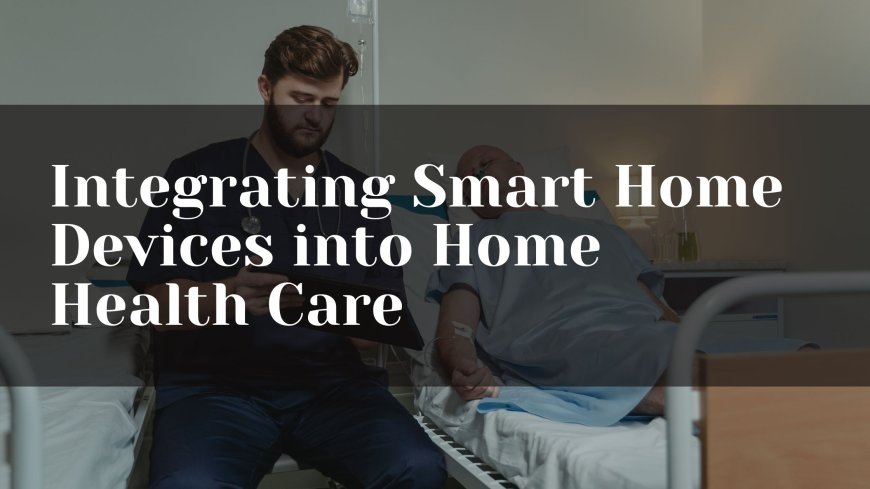Integrating Smart Home Devices into Home Health Care
The integration of smart home devices into home health care represents a revolutionary step in how we manage and improve patient care at home.

Introduction
The integration of smart home devices into home health care represents a revolutionary step in how we manage and improve patient care at home, especially in places like Alexandria where the community values both innovation and quality of life. These technologies not only offer enhanced monitoring and safety but also bring a new level of convenience and efficiency to home health care routines.
The Rise of Smart Home Technology
Smart home technology has rapidly evolved from simple automated systems to complex networks capable of managing and monitoring every aspect of one's living environment. In Alexandria, adoption rates have soared as residents look to harness the benefits of technology to improve their daily lives.
Benefits of Smart Home Devices in Health Care
Integrating smart home devices into Home health care Alexandria systems can significantly enhance patient safety through continuous monitoring and instant alerts. These devices also offer unmatched comfort and convenience, providing patients with the ability to control their environment effortlessly. Additionally, the data collected can be crucial for ongoing health monitoring and adjustments in care plans.
Key Smart Home Devices for Home Health Care
In the context of home health care, certain devices stand out for their applicability and value:
● Medical alert systems ensure immediate assistance in the event of an emergency.
● Smart thermostats maintain optimal living conditions, crucial for patients with specific health needs.
● Voice-activated systems, like virtual assistants, allow hands-free operation and interaction, which is particularly beneficial for individuals with mobility or dexterity limitations.
Integration Challenges
While the benefits are substantial, integrating smart home technology in home health care does not come without its challenges. Privacy and security are major concerns, with sensitive health data potentially being vulnerable. Additionally, the technical aspects of ensuring different devices work together seamlessly can be daunting for many users.
Installation and Setup
Proper installation and setup are pivotal for maximizing the benefits of smart home devices in health care.
Training and Adaptation
For technology to be effective, proper training and adaptation are essential. Caregivers and patients must be comfortable and proficient with the new systems to ensure they are used effectively.
Cost Analysis
Understanding the financial implications, including initial setup costs and potential long-term savings, is crucial for anyone considering smart home technology for home health care.
Future of Smart Home Technology in Health Care
Looking forward, the potential for further innovations and their implications for alexandria home health care is immense. Predictions for upcoming technological advancements will be explored, providing a glimpse into the future of smart home care.
Community Resources in Alexandria
Detailing local resources, support systems, and initiatives available in Alexandria will help residents access the necessary tools and information for integrating smart home technology.
FAQ
1: What are the most essential smart home devices for someone just starting with home health care?
Answer: Key devices include medical alert systems, smart thermostats, and voice-activated assistants like Amazon Echo or Google Home.
2: How do smart home devices enhance the safety of home health care patients?
Answer: They provide continuous monitoring and alert caregivers or emergency services immediately in case of emergencies, like falls or unusual activities.
3: Are there any privacy concerns with using smart home technology in home health care?
Answer: Yes, privacy is a major concern. It's crucial to use devices that comply with privacy laws and have strong security measures to protect data.
4: Can smart home devices be integrated with existing health care equipment?
Answer: Many devices can integrate with existing equipment, but compatibility varies. Always check manufacturer specifications for compatibility information.
5: What should I consider before installing smart home devices for home health care?
Answer: Consider the patient's needs, device compatibility, ease of use, privacy features, costs, and the availability of ongoing support. Consultation with professionals is advisable.

 susanmiller98
susanmiller98 










